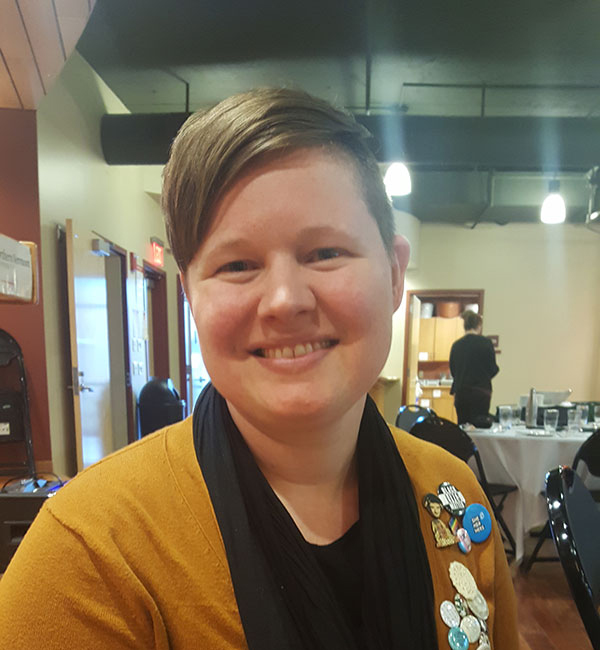Social Justice Coalition outlines concerns
In early March, the Social Justice Coalition, NVUnity, and the Coalition of Minority Students (COMS), presented a statement to former VTSU President Parwinder Grewal, detailing the impacts that the recent transformation decisions would have had on marginalized students in the college system. The statement outlines 13 concerns and details their impacts in relation to social justice.
“We were seeing … that the social justice components were being dropped [in the media] and other issues were being foregrounded,” said NVU-Johnson Professor of Education Hannah Miller, a co-facilitator of the SJC. “And while those issues that were being foregrounded are also important to us, it was important that the social justice impacts of these decisions don’t get left out of the story.”
The press release noted that the athletics decision “disproportionately impacts students of color,” referring to the fact that students of color make up 44% of student athletes, a larger percentage than students of color on the campus in total.
The statement also notes that having athletics in the NCAA Division III is a recruitment and retention tool, and the plan to remove Badgers from that division will result in a loss in enrollment. It questions how leadership can justify the shift when in response to this decision students have already expressed their desire to leave the institution, many of whom have already begun the process.
Another concern further highlights the retention issue: the fact that the USCAA does not support three of the sports offered here at Johnson, and the students who play them will be lost.
The other athletics-centered concerns make points on the loss of out-of-state athletes who can play D3 sports elsewhere, and athletes of color not feeling safe enough to play on other campuses in the system.
Assistant Athletic Director for Diversity, Equity and Inclusion Brian Slater was not included in conversations surrounding the planned changes.
“Unfortunately, not involving me in any DEI discussions is a consistent thing,” Slater says.
Another concern addresses flaws in Vermont State Colleges Chancellor Sophie Zdatny’s plan to accommodate students with disabilities who need access to print materials, asserting that leadership has not taken into consideration students with undocumented disabilities. “Reserving library resources exclusively for students with documentation will mean lack of access to students who benefit from these services but who cannot afford the expensive process of assessment, evaluation, and documentation,” the statement read, while also inquiring whether librarians would be asked to screen requests in order to determine who is eligible for services, which has accessibility implications.
The statement closes with a request: “We ask the administration to listen to the community response that has emerged in the last few weeks, particularly from our students, and to use what they hear to take visible steps to inform their decisions going forward. We ask that the administration demonstrate the ways that they, as decision-makers, are adhering to VTSU’s mission and vision and the VSCS’s diversity statement. Without honoring these values as a guiding framework for decision-making, these statements are nothing more than performative.”
Former President Grewal responded to those concerns in a letter: “We appreciate the thoughtful suggestions put forth in your statements, and we will take them into consideration as we move forward with the transformation process … We acknowledge the importance of staying united and respectful throughout this process to create a better future for Vermont State and the state of Vermont.”
NVU’s Social Justice Coalition strives to move the institution towards their image of diversity, equity, and inclusion. Jae Basiliere, a co-facilitator of the coalition along with Miller and Slater, says that to them, this looks like “a campus where all of our students, faculty and staff have equal access to show up succeed and feel welcome in our spaces, regardless of whatever identities they may hold.”
Recently, the coalition group meetings have been dedicated to providing open discussion space for anyone to talk about their experiences with unification and their feelings toward the library and athletics transformations.
Meetings have been a mix of sharing information and discussing emotions.
Students, staff, and community members are welcome to attend meetings every second and fourth Monday of each month, from 1-2p.m, in the Stearns Performance Space.
The Social Justice Coalition conducts meetings on both the Lyndon and Johnson campuses. While currently unofficial, communication with social justice groups on the other VTSU campuses is in the works.
“What we learned from the unification of Lyndon and Johnson is that it took time for us to find each other and get organized. My guess is that for VTSU, it’s going to take us a few years to get to know who’s doing the work on the ground, who’s on the campuses… and get those people to find each other,” she said.



